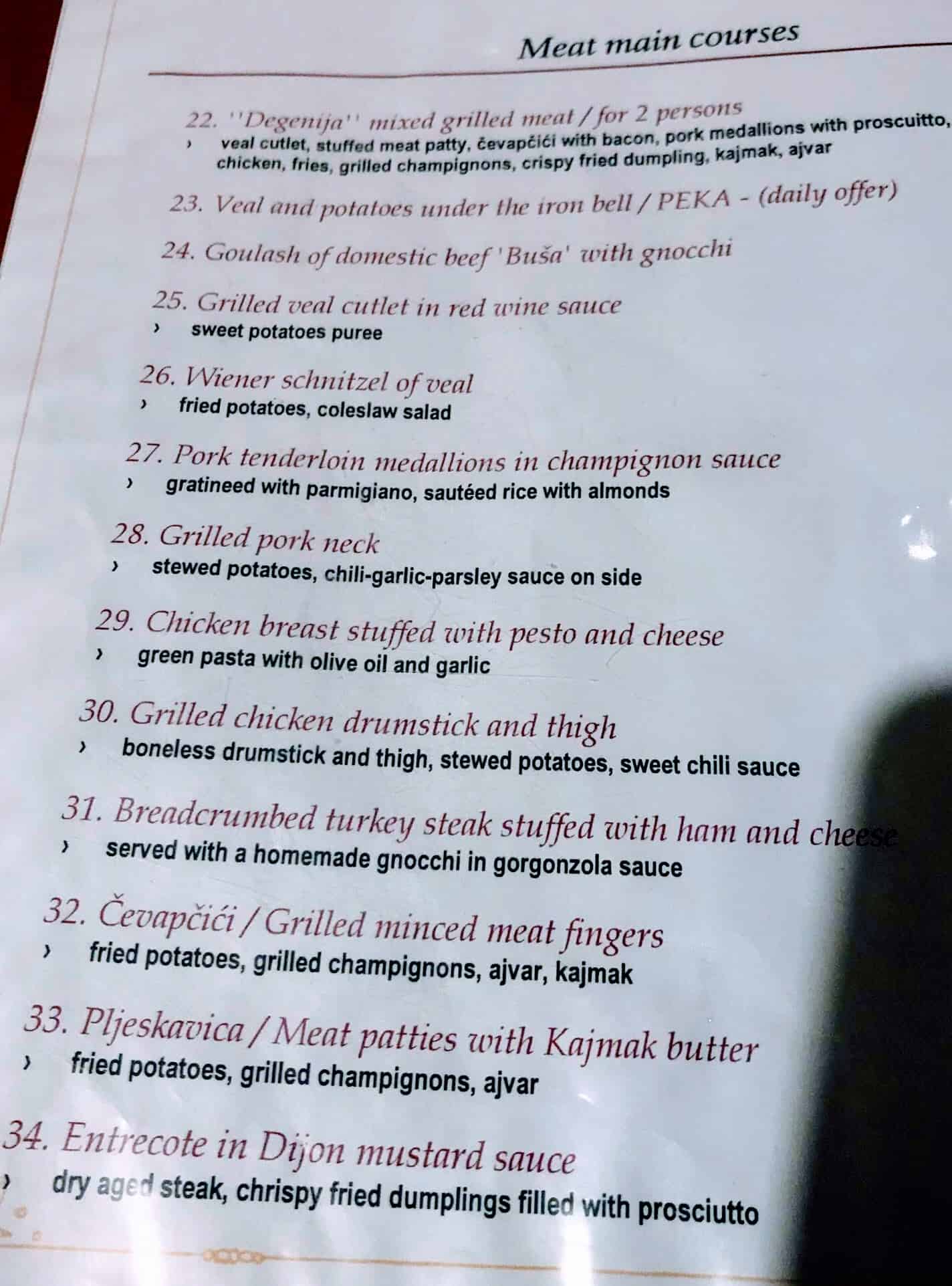5 challenges for a traveler who doesn’t speak the language
We travel all the time to places where we don’t know the native language. We’ve had some issues, but most of the time (especially in Europe) everyone speaks English. If a German meets someone from France on the Swiss Alps, they will speak English to each other. It’s the most common language you’ll find among tourists. However, there are some issues we’ve encountered when traveling in a country we don’t speak their language.
Not really knowing what you’re getting when grocery shopping and ordering off menus.
“Are those cookies or crackers?”
When we go into the grocery store to pick up food, we have to really examine the labels carefully. And when there are new foods to try, it’s really hard to determine if they’re salty or sweet. We can “Google it” of course, but we’ve definitely walked through stores and really had no idea what we were getting.
We’ve also ordered things on the menu and been surprised at what it was. You see what’s in it “chicken, cheese, rice.” But is it a pie? Is it just grilled and those are sides? Are they stuffing the chicken with rice? We’ve been quite surprised at some of the things we thought we were ordering.

Trying to read road signs based on context, warnings and numbers.
The “yield” sign seems to be universal. But there are some warnings with people and animals and objects that you really have no clue what it means. We also see signs with numbers, and you have to determine if it’s a speed limit, a mile marker, etc. There have been plenty of times we’ve been driving and had to Google or look through a guidebook trying to determine what certain signs mean.
Not knowing what someone is saying and not being able to tell them.
In our country, if you didn’t hear what someone said and you don’t know them that well, we usually just rely on context and continue to smile and nod. But, when you don’t know the language, you might have no idea what you’re nodding or saying “yes” to. You might think you’re just being courteous by just pretending you understood, but really, you might sound silly. Take this scenario, for example:
Person speaking in another language: Excuse me, this area is off-limits and very dangerous. Do you want to die?
Me: (Nodding and smiling)
Person speaking in another language: Is this person an idiot?
The point is, you can’t really tell the person you don’t understand. You should probably learn the phrase “I don’t understand” in the language of the country you’re visiting. But even learning that, there are times when you want to understand what someone is saying, and you just can’t, and you can’t communicate that accurately.
Using American phrases that don’t translate to the English someone is learning.
Sometimes confusion happens because of the way we speak regionally, and how that person learned English. There are certain words and phrases we use, that probably no one else does. There are also so many synonyms for one word, and who knows which word they learned. For example, here are some ways to say you’re “tired”: exhausted, beat, worn-out, exasperated, “ready to pass out”, “need a nap,” fatigued, weary, etc. That’s a lot of ways to say the same thing.
Sometimes we just have our own phrases we use that can be confusing. For example, we were in Bosnia and after we ate dinner, Jared said, “We’re all set” to the server. He looked very puzzled. Jared said, “We are ready for the check.” He said, “OK, but what did you say before? We’re-all-set?” And Jared had to explain what that meant, “It means ‘we’re ready.'” It’s something that doesn’t really translate, and was very confusing. I think he wanted to learn what this phrase meant, but it might not help him in the long run, because there are so many ways to say what Jared said. And it’s probably regional, too.
Not knowing what the country’s etiquette on something and not having a quick way to find out before embarrassing yourself.
Do people wait in line or pay first? Do you just sit down at this table and a server comes, or do you need to be seated first? Is this the line for the bathroom, and do you let kids and elderly go ahead of you here, or not? Can I pass this person on the sidewalk? If so, do I need to shout “ON THE LEFT” like I do in our National Parks?
Every country has it’s own way of doing things. And unless you know exactly what that is, you will be confused and you will have questions. You’ll also have no one to ask so you just “fake it until you make it.” Sometimes you make the wrong choice, and that can be embarrassing. But there’s just no way to avoid this. If you can’t ask, you just have to guess!
What things have been challenging to you when you visit a country where you don’t know the language?
